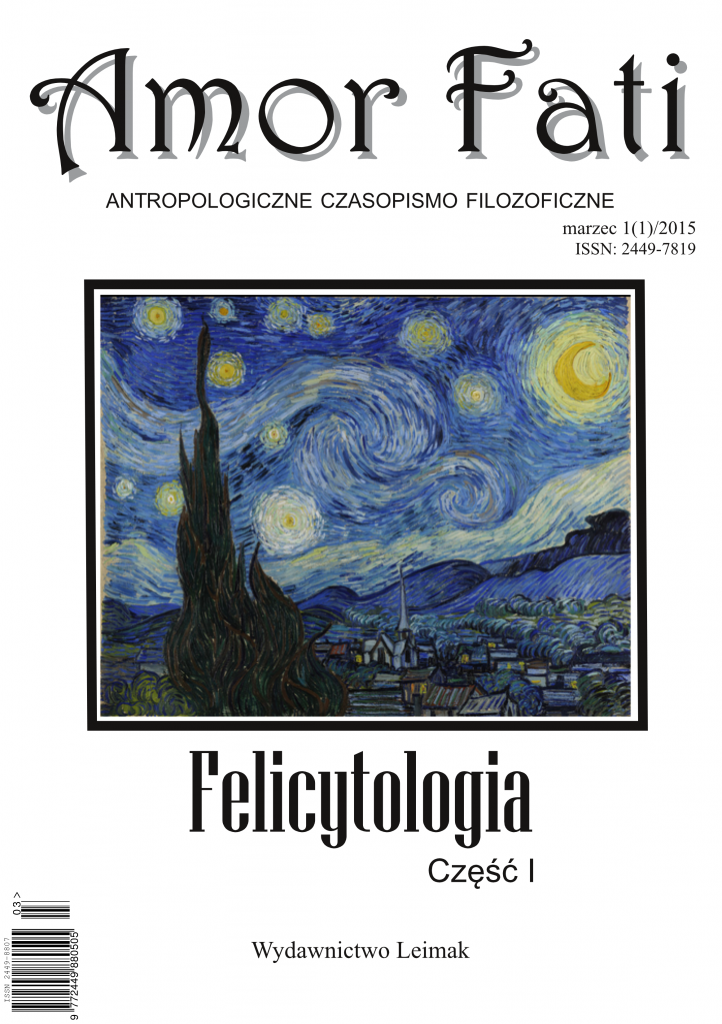Szczęśliwość człowieka mierzona stanem jego wolności. Człowiek w społeczeństwie kapitalistycznym
Human’s happiness measured by the state of his freedom. Human in capitalistic society
Author(s): Anna Małgorzata DrekoSubject(s): Philosophy, Ethics / Practical Philosophy, Political Philosophy
Published by: Fundacja „dzień dobry! kolektyw kultury”
Keywords: freedom; happiness; paternalism; consumerism; identity
Summary/Abstract: Freedom is a multidimensional concept. It can be understood in many ways, which are often dependent on the ideological mainstream of thought of the era. On the one hand, freedom can be commonly understood as doing what one wants. On the other hand, you can argue about it as an example of inner freedom e.g. absolute freedom by Jean Paul Sartre. Another time, it is perceived in the aspect of external freedom such as political freedom. For John Stuart Mill and Isaiah Berlin political freedom was freedom in the liberal sense. Isaiah Berlin distinguished it on the positive freedom ("to") and negative freedom ("from"). Freedom has to be the source of human autonomy, individualism, the liberty of physical and intellectual development, i.e. not forced action at will. Thus understood freedom makes a man happy. It makes him the owner of a very valuable thing too: the ability of making choices. One should ask a fundamental question: does every human have the same freedom? As history shows, unfortunately, not every man is free to the same extent. As a result of labor division - since ancient times - the society evolved to class division; the rulers and the subjects. In this study, I intended to demonstrate that egalitarianism, of which people solicited wherever class inequality dominated (eg. slavery, feudalism, capitalism, etc.) does not always go hand in hand with freedom. Egalitarianism may be the source of the formation of political paternalism - as in the case of communism in terms of Karl Marx and Friedrich Engels. In the twenty-first century, in the era of consumerism, despite the dominance of pluralism and relative equality, it is still hard to talk about any kind of freedom. Zygmunt Bauman wrote about how people, inundated with variety of offers of consumerist market, become just slaves to the great commercial companies. Freedom is identified with buying i.e. the constant picking from vast range of goods and services. Those who do not meet the requirements of being active consumers, are excluded from consumerism community - becoming, according to Zygmunt Bauman, “the new poor”, unhappy people.
Journal: Amor Fati
- Issue Year: 1/2015
- Issue No: 1
- Page Range: 31-49
- Page Count: 19
- Language: Polish

